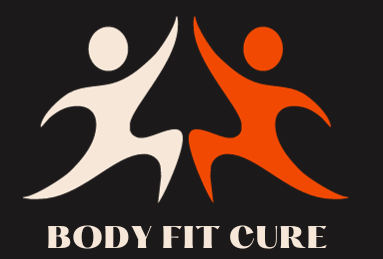Protein is often hailed as the building block of life, but are you getting enough of it? Many people underestimate the importance of protein in their diet and may be unknowingly putting their health at risk. How can you tell if your protein intake is sufficient? Are there any signs that indicate you’re getting enough protein?
- Understanding the signs of adequate protein intake can help optimize your nutrition and overall health.
- Feeling satisfied and full after meals is a positive indicator of sufficient protein intake.
- Cravings for sugary foods may indicate protein deficiency.
- Healthy hair, nails, and skin are signs of a well-balanced protein intake.
- Frequent illnesses and prolonged healing time may be connected to inadequate protein consumption.
Signs that your body needs more protein
Not getting enough protein in your diet can lead to various signs and symptoms. These indications highlight the importance of ensuring adequate protein intake for overall health and well-being. Some of the common signs that suggest your body may need more protein include:
- Feeling hungry immediately after eating: If you find yourself still feeling hungry even after a meal, it could be a sign that your body needs more protein. Protein plays a crucial role in satiety and can help you feel fuller for longer.
- Constantly craving sugary foods: Protein deficiency can cause cravings for sugary foods as your body seeks quick sources of energy. Including protein in your meals can help stabilize blood sugar levels and reduce cravings.
- Experiencing issues with skin, hair, and nails: Inadequate protein intake can impact your body’s ability to repair and maintain healthy skin, hair, and nails. Brittle nails, hair loss, and dry skin can be signs of protein deficiency.
- Falling ill often: Protein is essential for a strong immune system. If you frequently fall ill or have difficulty recovering from illnesses, it could indicate inadequate protein intake.
- Noticing abnormal swelling in the body: Protein helps maintain fluid balance in the body. Protein deficiency can lead to abnormal swelling, especially in the legs, feet, and hands.
- Feeling tired and struggling to concentrate: Protein is important for energy production and brain function. If you experience persistent fatigue and difficulty concentrating, it may be a sign that your body needs more protein.
- Noticing a loss of muscle mass: Protein is crucial for muscle repair and growth. If you notice a decrease in muscle mass or strength, it could indicate insufficient protein intake.
- Experiencing erratic mood swings: Protein plays a role in the production of neurotransmitters that regulate mood. Protein deficiency may contribute to mood swings, irritability, and difficulty managing stress.
These signs of inadequate protein intake highlight the importance of ensuring proper protein consumption to support various body functions, including digestion, blood sugar regulation, immune function, tissue repair, and mental well-being.
It’s essential to pay attention to these signs and address any protein deficiencies to optimize your overall health and well-being.
How to optimize protein intake

To optimize protein intake and ensure you’re getting enough of this essential nutrient, it’s important to consider a few key factors. First and foremost, determining the right amount of protein for your body is crucial. This can be influenced by factors such as weight, lifestyle, and activity level. Generally, protein requirements range from 0.8 grams to 2 grams per kilogram of body weight per day.
When selecting protein sources, it’s advisable to choose lean options to maintain overall health. This helps avoid excessive intake of saturated fats. Some examples of lean protein sources include:
- Seafood
- Legumes
- Pulses
Incorporating protein-rich foods into each meal and snack can also help optimize intake. Consider adding the following protein-rich options:
- Greek yogurt
- Chicken breast
- Nuts
- Beans
By following these tips and including a variety of protein-rich foods in your diet, you can improve your overall protein intake and support good health.
Remember, prioritizing protein consumption and meeting your protein needs is crucial for achieving optimal health.
The importance of protein for overall health

Protein plays a crucial role in maintaining and promoting overall health. It serves as the building block for various tissues in the body, supporting growth and maintenance. Additionally, protein plays a vital role in many essential bodily functions.
The Role of Protein in the Body:
- Promotes muscle and bone health
- Aids in digestion and nutrient absorption
- Supports the immune system
Protein deficiency can have detrimental effects on different body systems, leading to a range of symptoms and health issues. These may include:
- Muscle loss and weakness
- Weakened immune function
- Impaired wound healing
- Cognitive issues and poor concentration
Adequate protein intake is essential for maintaining optimal health and well-being. By ensuring a sufficient protein supply, individuals can support their physical and mental functions, enhance their immune system, and prevent the onset of various health conditions.
By including protein-rich foods in their diet and following protein intake recommendations, individuals can optimize their overall well-being and reap the numerous health benefits associated with adequate protein consumption.
Conclusion
Consuming an adequate amount of protein is of utmost importance when it comes to maintaining overall health and well-being. By ensuring you meet your protein needs, you can prevent symptoms of protein deficiency and optimize your health. Signs of adequate protein intake include feeling satisfied after meals, maintaining stable energy levels throughout the day, having strong nails and shiny hair, and experiencing fewer cravings for sugary foods.
Optimizing your protein intake can be achieved through a balanced diet that includes lean protein sources such as chicken, fish, tofu, and beans. Incorporating these protein-rich foods into each meal and snack can help support your immune system, promote muscle and bone health, enhance cognitive function, and improve your overall quality of life.
To ensure you are getting enough protein, it is important to pay attention to your body’s signals and be aware of any signs that may indicate protein deficiency. By prioritizing protein consumption and being mindful of the signs of adequate protein intake, you can achieve optimal health and enjoy the many benefits that protein has to offer.




